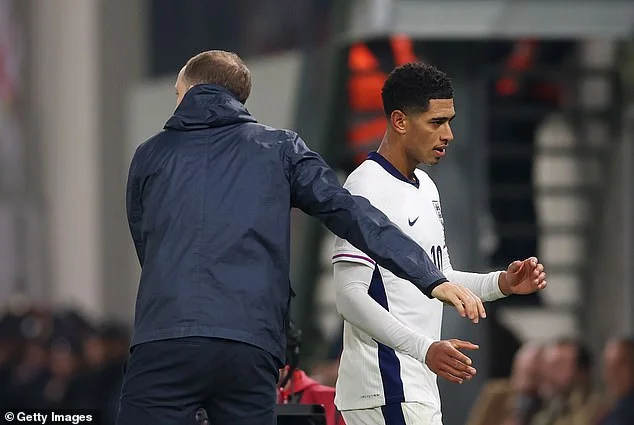England manager Thomas Tuchel found himself addressing some unexpected sideline drama after the national team’s 2–0 victory in Albania.
The situation centered on Jude Bellingham, who didn’t hide his frustration when he realized he was being taken off late in the match.
The Substitution That Sparked the Reaction
Moments after Harry Kane scored his second goal in the 84th minute, Tuchel prepared to bring on Morgan Rogers.
With Bellingham already on a yellow card, the change made sense on paper — but the midfielder clearly felt differently, waving his arms in disbelief as he looked over toward the bench.
Tuchel’s View: Standards Come First
Tuchel didn’t ignore the moment. After the game, he made it clear that he expects every player, no matter their status, to follow the team’s standards.
“I saw he was unhappy,” he admitted. “But decisions are made for the good of the group.
When someone is ready to come in, we don’t reverse a substitution just because another player protests.”
The manager stressed that competitiveness is part of Bellingham’s nature, but respect for teammates and the collective comes before individual emotion.
A Reminder About Respect and Responsibility
To Tuchel, the message is simple: once the coaching staff makes a call, it stands.
He emphasized that Bellingham’s close friend was waiting on the sideline, ready to enter, and the midfielder needed to respect that.
The decision to remove Bellingham wasn’t a spur-of-the-moment choice, either — Tuchel had planned it before Kane’s second goal because of the earlier yellow card.
Clearing Up the Goal Celebration Debate
There was also a question from reporters about whether Bellingham celebrated with the team after Kane scored.
Some people suggested he didn’t join the group, but video told a different story — he was indeed part of the huddle.
Tuchel brushed off the suggestion, noting that unity should be the lasting impression of the squad’s behavior.
What Tuchel Wants From His Squad
Tuchel reiterated that the environment he’s building revolves around togetherness, especially when tough decisions are involved.
No player — star or otherwise — is exempt from that standard.
He also noted that Rogers himself had to swallow some disappointment earlier in the day.
The young forward could have easily started the match but was rested because he had logged heavy minutes recently.
Like Bellingham, Rogers wanted to play, but he accepted the call.
The Bigger Picture Behind the Moment
For Tuchel, the situation serves as a reminder: competition is healthy, emotions are normal, but how players react under pressure reveals a lot about team culture.
The manager plans to review the incident, but he made it clear that the focus remains on collective commitment above everything else.
Share on Facebook «||» Share on Twitter «||» Share on Reddit «||» Share on LinkedIn
